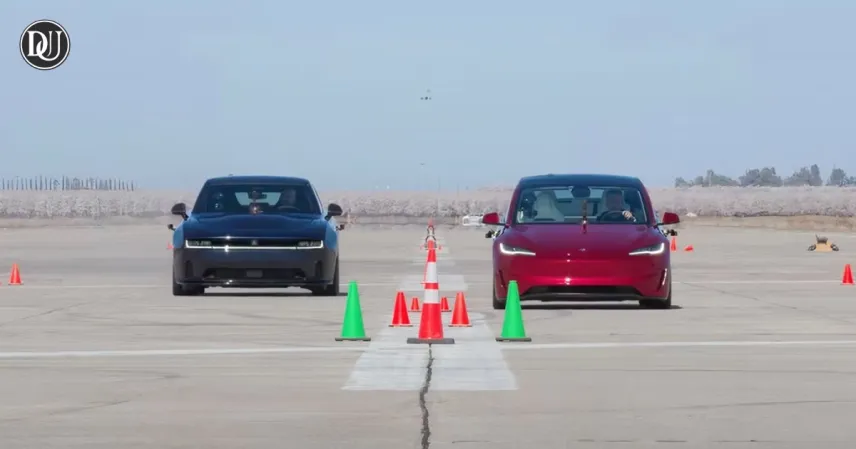In a much-anticipated drag race, two iconic EVs—the Dodge Charger Daytona EV Scat Pack and the Tesla Model 3 Performance—went head-to-head on the quarter-mile strip. While both are known for high-speed electric performance, the real-world results turned out to be unexpectedly underwhelming.
🏁 Quarter-Mile Expectations vs Reality
According to Dodge, the Daytona Scat Pack is expected to achieve a 10.5-second quarter-mile, while Tesla claims the Model 3 Performance can do it in 11.6 seconds. However, in the actual test conditions, neither vehicle hit their mark.
| Vehicle | Claimed 1/4 Mile Time | Actual Recorded Time | Gap From Claim |
|---|---|---|---|
| Dodge Charger Daytona EV Scat Pack | 10.5 seconds | 11.5 seconds | +1.0 second |
| Tesla Model 3 Performance | 11.6 seconds | 12.1 seconds | +0.5 second |
⚙️ Real-World Performance Factors
🧊 Cooler Weather Impact
The race occurred during cooler ambient temperatures, affecting tire grip and battery performance, which are critical for quick launches and consistent torque.
🔋 Battery Charge Levels
While both EVs were well-prepped, battery charge levels, regenerative braking heat, and launch control efficiency might have played roles in shaving milliseconds off their optimal times.
🔊 Dodge’s Electric Muscle Roars
![]()
The Charger Daytona EV Scat Pack came equipped with its signature Fratzonic Chambered Exhaust, an artificial sound system designed to mimic the roar of classic muscle cars. This not only added drama to the launch but also made the Dodge a standout against Tesla’s near-silent execution.
🔍 Final Verdict
Despite the EV muscle war hype, both cars underdelivered compared to their spec sheet promises. However, each offered a distinct experience:
-
Tesla delivered smooth acceleration and predictable performance.
-
Dodge provided a visceral, noisy, and old-school-inspired electric drag experience—bridging nostalgia and innovation.
🧠 Key Takeaway
This head-to-head serves as a reminder: real-world EV performance doesn’t always match lab-tested figures. Variables like temperature, traction, and tire prep are as crucial as power output in drag racing—whether electric or gas-powered.








